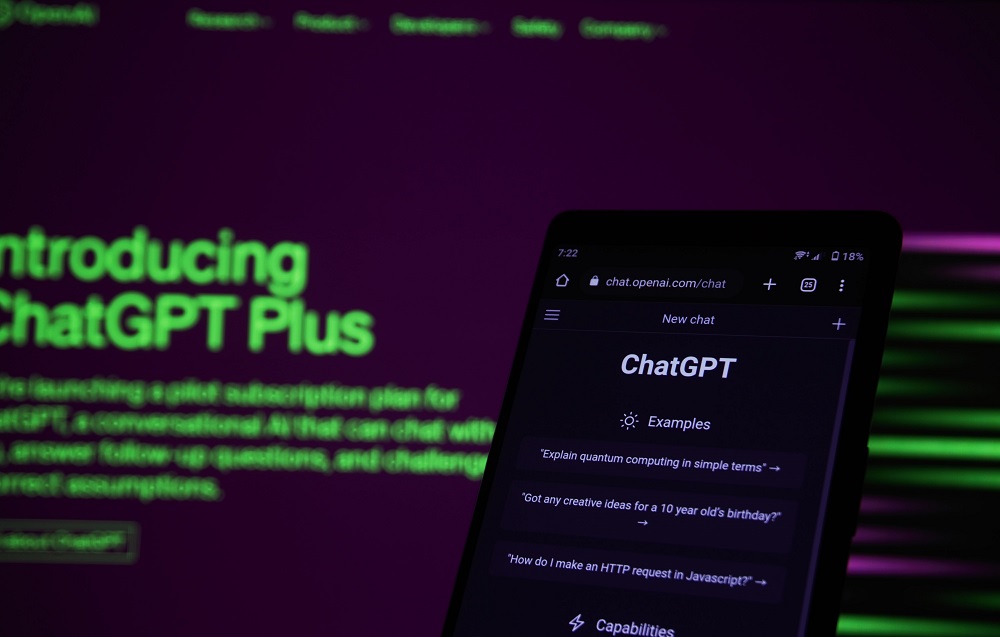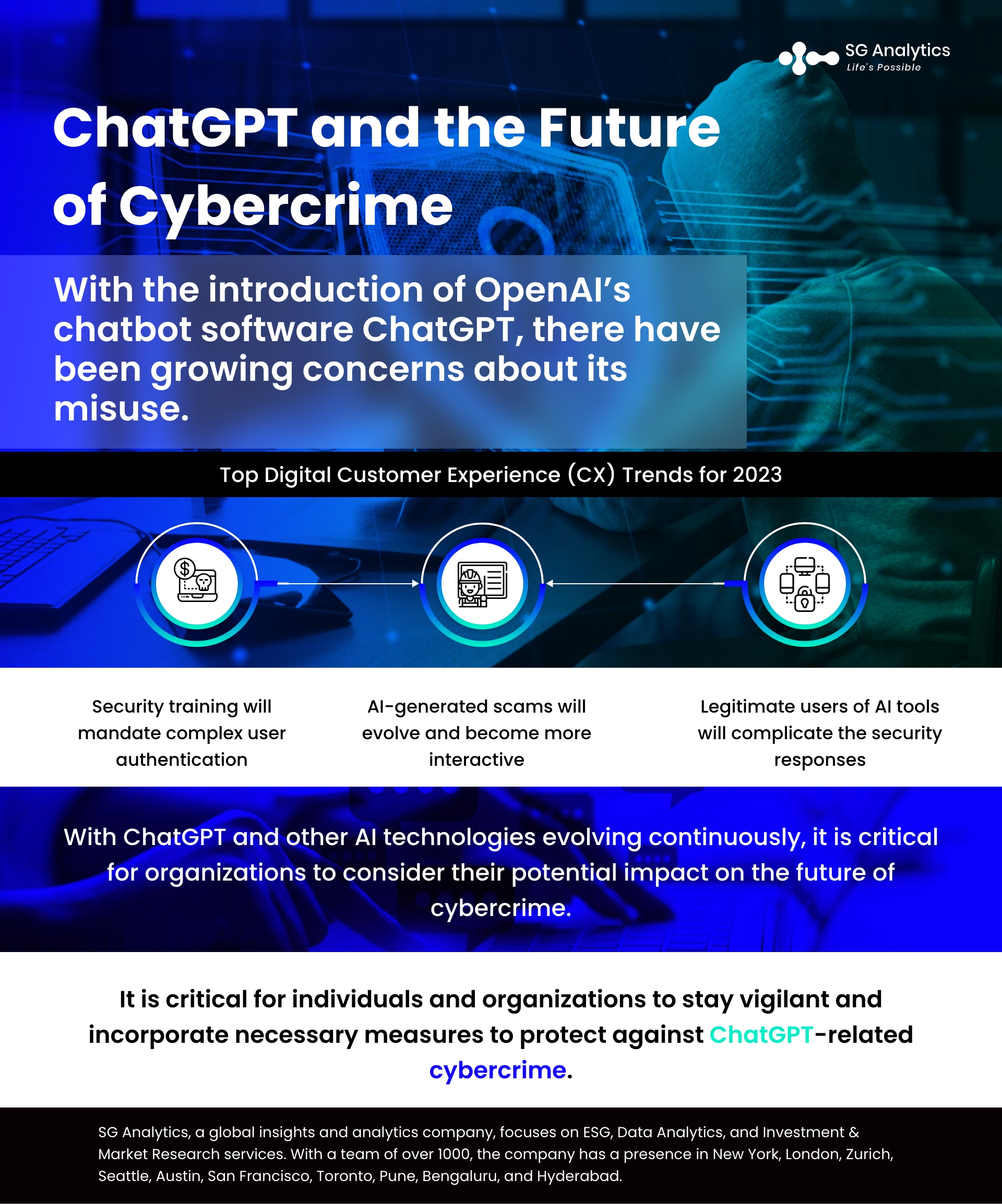Introduction
The rise of AI chatbots has introduced the world to a new era of automation, with chatbots and malware becoming increasingly common. With technologies becoming sophisticated, it becomes difficult for individuals and organizations to incorporate security frameworks and protect sensitive information against cyberattacks.
With the introduction of OpenAI’s chatbot software ChatGPT, there have been growing concerns about its misuse. The main discussions have been around the ethical issues of ChatGPT usage in academia and issues in cybersecurity. However, despite the growing concerns, the tool has gained immense popularity after its first release. The AI-operated chatbot is a large language model (LLM) system that incorporates deep learning techniques. Trained to process and develop human-like texts in response to user requests, the tool can analyze specific topics, translate texts, and produce code in the most frequently used programming languages.
Read more: Establishing a Data-Driven Cybersecurity Strategy for Business Growth

Why is ChatGPT an Attractive Tool for Cybercriminals?
With the introduction of new technology, there is always the attached risk of cybercriminals exploiting it for nefarious purposes. But with ChatGPT, this also includes learning ways to craft attacks and write ransomware. The vast volumes of data and natural language capabilities passed by the chatbot make it an attractive tool for cybercriminals seeking to craft convincing phishing attacks or code.
Categories that can be used to classify ChatGPT security risks are as follows:
- Data theft: Data theft involves the illegal use of private information for illicit purposes such as fraud and identity theft. The most commonly exposed data type to ChatGPT is the sensitive organizational data intended for internal use only.
- Phishing: These fraudulent emails pretend to come from reliable sources and are made to rob private data like credit card information and passwords. Cybercriminals send fake emails posing as legitimate sources to trick users into revealing sensitive information.
- Malware: Malicious software is used to get into computers and steal sensitive data and perform other nefarious tasks. This involves crafting malicious code that could be utilized to exploit vulnerabilities in systems or to create fake social media profiles and lure in unsuspecting victims.
In addition to the automation threat, ChatGPT’s vast volumes of data, along with its natural language capabilities, had made it a potentially attractive tool for cybercriminals. The most commonly exposed data type to ChatGPT is the sensitive organizational data intended for internal use only.

Read more: Technology Outlook 2023: How is Blockchain Changing the World?
How Will Cybersecurity Responses Evolve to Counter AI Threats?
With the integration of ChatGPT still in the early stages, it is too soon to consider how AI-powered phishing content is likely to affect organizations. Let’s explore some of the predictions for how ChatGPT could be used by cybercriminals as a tool for data theft and how organizational security responses will help block them.
Will Security Training and Authentication Be Enough to Stop AI Phishing?
Today’s AI-backed systems are good at sounding human. It is, therefore, becoming vital for businesses to retrain staff on ways to authenticate the consumer they are talking to, particularly when the communication involves access to enterprise information or monetary elements along with user identification. Confirmation via phone call is the go-to method to verify such types of emails or messages.
Many organizations and institutions are setting secret passphrases to identify themselves to other entities. Irrespective of the form of verification, it is critical to integrate methods that cannot be easily accessed by attackers who have compromised user credentials.

But with AI technologies evolving and becoming more widespread, authentication methods will also have to evolve. With the introduction of new innovations, hearing the voice of another person over the phone will not be enough for authentication in the near future.
How Do Legitimate Users Complicate Enterprise Security Responses?
ChatGPT has created a lot of excitement and buzz in the market. Many legitimate users are already integrating the tool to create a business or promotional content. However, the legitimate use of AI tools is complicating security responses for organizations by making it challenging to identify criminal instances.
While not all emails with ChatGPT-generated text are malicious, it is often difficult for users to identify, detect, and block them. To tackle the situation, security vendors are developing confidence scores or other indicators to rate the likelihood of a message or email being AI-generated. Similarly, many vendors are also training AI models to catch AI-generated text and add warning banners. In certain cases, this technology helps in filtering out messages from an employee’s inbox. But irrespective of the response, these solutions can only offer a degree of confidence.
Read more: ChatGPT and Digital Transformation – A Leap in the Dark

Are Real-Time Interactive AI Scams the Next Major Cyber Threat?
AI language tools are being used more interactively to produce phishing emails or messages. Cybercriminals are potentially using this technology to scam individuals through real-time chat. While many messenger apps, such as WhatsApp and Telegram, have end-to-end encryption, these platforms cannot filter fraudulent or AI-generated messages across private channels. This makes them very attractive to cyber threats, making it easy to lure individuals onto these platforms.
This, in turn, has compelled many organizations to reconfigure their security frameworks. If a phishing attempt is undertaken through a company email, organizational security teams can detect and filter it. However, they cannot filter phishing attempts that surface in encrypted chats across these messaging platforms.
AI language tools today pose major concerns for the future of cybersecurity. It is becoming more challenging to understand what’s real, and future AI developments are likely to make it even more difficult. While technology is the primary defense against AI-powered cybercrime, employees should also learn to treat communications as suspicious. In the age of ChatGPT, it is all about taking the right and critical response at the right time.

ChatGPT and the Future of Cybercrime
With ChatGPT and other AI technologies evolving continuously, it is critical for organizations to consider their potential impact on the future of cybercrime. While it is challenging to predict how ChatGPT and other AI technologies will be employed in the future, it is likely that they will play a substantial role in cybercrime.
There has been a rise in the incorporation of automation in cybercrime. With AI technologies becoming more sophisticated, it is being integrated to automate more complex tasks like crafting phishing emails or writing malicious code. This is making it easier for cybercriminals to undertake attacks, thereby making it harder for individuals and organizations to prevent these attacks.
Another potential impact is the growing use of chatbots in phishing attacks. Chatbots are becoming more sophisticated and have the ability to engage in more natural language conversations. Due to this reason, cyberattackers are using chatbots to write more convincing phishing emails and messages.

ChatGPT and AI technologies are being used to collect large amounts of sensitive data from users. The gathered data is analyzed more efficiently, making it easier for cybercriminals to get access to large amounts of sensitive information. While the impact of ChatGPT on the future of cybercrime is difficult to predict, it is vital for individuals and organizations to identify the potential dangers of these innovations and take the required steps to protect against them.
Read more: The New Buzz in Town: What is ChatGPT and Why Has it Taken the World by Storm?
Final Thoughts
Today ChatGPT is continuing to gain popularity. It is vital for organizations to be aware of the impending risks of this new technology. While ChatGPT provides users with quick and accurate information or helps in automating tasks for businesses, it also poses a risk as a probable tool for cybercriminals.

It is, therefore, critical for individuals and organizations to stay vigilant and incorporate necessary measures to protect against ChatGPT-related cybercrime. This involves educating users to recognize and avoid potential attacks, enforcing proper security protocols, and continuously updating countermeasure technology.
With a presence in New York, San Francisco, Austin, Seattle, Toronto, London, Zurich, Pune, Bengaluru, and Hyderabad, SG Analytics, a pioneer in Research and Analytics, offers tailor-made services to enterprises worldwide.
A leader in the Technology domain, SG Analytics partners with global technology enterprises across market research and scalable analytics. Contact us today if you are in search of combining market research, analytics, and technology capabilities to design compelling business outcomes driven by technology.

